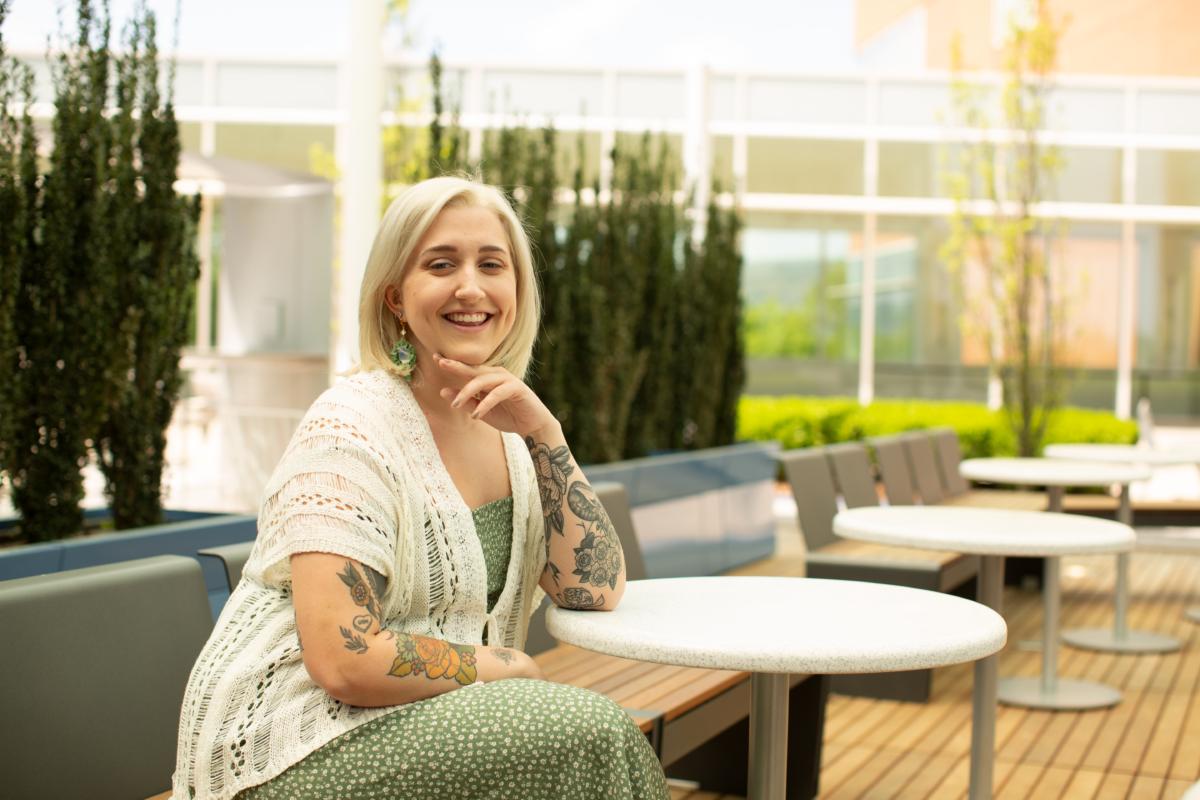Ever since childhood, Jordan Foster dealt with feelings of anxiety – wanting to fit in and get along with others. She struggled with depression, too. It got harder to understand and express her emotions when paired with the growing pains of becoming a teenager.
So she began cutting herself, a form of self-harming. After other traumatic events added to her feeling of overwhelming stress, self-harm became her go-to coping mechanism.
“I used self-harm to feel in control of my emotions and the pain I felt as a teenager,” explains Jordan, now a behavioral health peer support specialist for BlueCross BlueShield of Tennessee.
“Self-harm is highly stigmatized, often due to the fact that it doesn’t make a lot of sense to others. Many people don’t understand why someone who is already in emotional pain would cause physical pain as a way to cope.”
Searching for support and understanding
Despite the physical pain she was causing herself, Jordan admits that self-harming kept her from attempting suicide. Jordan’s mother was supportive and encouraged her to seek therapy and medication to treat her depression. But her mental health journey was still filled with challenges. Once she had to be involuntarily admitted to a mental health facility for treatment. Looking back at the experience now, she considers how differently she could have felt if there had been someone who understood what she was going through.
“I felt so alone and didn’t feel like I could relate to the nurses or psychologists who were caring for me,” she says. “I believe that my experience at that hospital, and the time after I was discharged, would have been so different if I was introduced to a peer support specialist who not only understood what I had been through, but could have shown that it is possible to survive it and even thrive in spite of it.”
Turning pain into a passion for helping others
Years after her experience, Jordan became a certified peer support specialist. She saw it as a chance to help others understand they weren’t alone and it was okay to talk about their fears or struggles.
“Being a peer support specialist means being a connection, resource, and support for others. Having the ability to use my own lived experience, my own trauma, to help others is something that I never dreamed would be possible,” Jordan explains. “We’re different from other mental health providers, because we have the experience of working through the mental health system and understand the good – but also the challenges.”
She began working at BlueCross shortly after being certified, and now helps support members who may be dealing with mental health experiences like her own.
“It’s an absolutely wonderful experience to work with those who have been in similar situations or challenges that I have faced,” she says. “There is a sense of comradery and connection when you are able to relate with someone, especially to show that you survived and you want to help them survive too.”
Fighting stigmas
Jordan credits an ongoing mix of therapy, medication, and healthy coping skills to help her stop self-harming. And she believes that continuing to talk about her experiences can help end stigma around this often hidden or misunderstood behavior.
“I encourage everyone to search for books, podcasts, videos that discuss lived experience with suicide and self-harm,” she says. “Exposure is so important when learning about the differences between others and it can help prepare people for discussions that involve mental health.”
3 healthy coping skills
The pandemic has impacted everyone’s lives and disrupted daily routines. These added stressors could lead to unhealthy coping mechanisms, which could range from reaching for an extra glass of wine after dinner or binge eating, to self-harm or thoughts of suicide.
1. Find a creative outlet for your thoughts.
Jordan cites journaling, along with therapy and medication, as her new way of coping. “I also believe that journaling, especially as a young adult, can be very beneficial to put into words what you are feeling.” Other options could include listening to calming music or penciling in quiet time on your lunch to meditate and clear your mind.
2. Strengthen social connections.
While the normal ebb and flow of friendships has changed during the pandemic, it’s important to nurture those connections more than ever, even if it’s just sending a quick text or light-hearted meme, or asking for someone to lend an ear. “I encourage all of those who have been feeling unlike themselves to reach out to others – family, friends, community resources, even crisis lines,” she explains. “In a time where we are living our entire lives inside our houses, maintaining social supports is critical for healing.”
3. If you’re struggling, talk to someone.
For Jordan, talking about her experiences is what lead to her to stop self-harming. “My biggest contribution to being able to quit is that I began to be open and honest about my experiences, which created a sense of accountability with my family and friends.” Sometimes talking to a family member or close friend may be enough, but it’s good to seek out professional help as well – such as counseling – for added support.
Get more information about specific health terms, topics and conditions to better manage your health on bcbst.com. BlueCross BlueShield of Tennessee members can access wellness-related discounts on fitness products, gym memberships, healthy eating and more through Blue365®. BCBST members can also find tools and resources to help improve health and well-being by logging into BlueAccess and going to the Managing Your Health tab.


